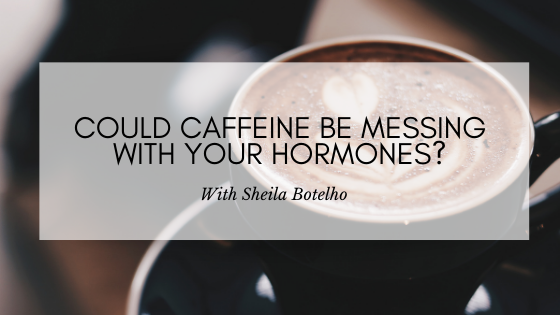I’m part of a big, coffee-loving family. I know better… In fact I used to be a coffee drinker myself. My morning wouldn’t be the same if I didn’t have it, along with some other sweet ‘breakfast’ baked goods.
It wasn’t until my caffeine/sugar crashes got the better of me that I decided to experiment with what I ate and drank in the morning.
You and I are very attached to our favorite foods and drinks. So much so that we can’t imagine how we’d enjoy our lives, much less function, without them.
In experience and in listening to so many women’s stories, I can tell you that making a few small tweaks to when, what and how much of these favorite things we take in, can make a world of difference to your energy, focus, and long term health. I go into greater detail in the video below.
Watch now:
What I didn’t go into in the video was an explanation of the science behind the theory. I’ll break it down for you here. If the video was enough for you, skip to the ‘Tell Me’ section below to take action on what you heard.
Caffeine And Your Body
You likely know that caffeine is considered a stimulant. It interrupts the function of the neurotransmitter, adenosine, that promotes sleep. The effect of caffeine on most people is a feeling of increased energy and alertness, while others may experience headaches, feeling ‘wired’, or sleep disturbances.
As you approach the luteal phase (the last 10-14 days of your menstrual cycle), it’s common to feel fatigue, lack of mental clarity, and/or irritability – symptoms of premenstrual syndrome (PMS). With the wide variety of choices and access to caffeinated beverages, many women reach for coffee, latte’s or steeped, caffeinated teas to get the energy boost they need to be productive.
The American College of Obstetricians and Gynecologists (ACOG) recommends that women who experience PMS avoid consuming caffeine.* As often happens in clinical studies, counter-studies exist.**.
I suggest doing a simple test with yourself to see how you feel on or off caffeine during the luteal phase of your menstrual cycle to see what’s true for you.
Tell Me:
After watching, I hope you’ll try the simple adjustment I mentioned. When you do, be sure to let me know how you felt when you did. Were you surprised at what you found? Has this one small step influenced any other changes in your habits?
Please tell me in the comments below. Your story may be the very thing another sister needs to hear to help her improve how she feels all month long!
Blessings,
Sheila
Want to up your self-care practice and support your best hormonal health at every stage? Subscribe here to cut through healthy living overwhelm and start thriving.
*The American College of Obstetricians and Gynecologists. FAQ: Premenstrual syndrome. 2015. Retrieved from http://www.acog.org/~/media/For%20Patients/faq057.pdf?
**Caan, B., Duncan, D., Hiatt, R., Lewis, J., Chapman, J., & Armstrong, M.A. (1993). Association between alcoholic and caffeinated beverages and premenstrual syndrome. J Reprod Med, 38, 630–6.

